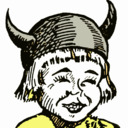Written by Daniel Olortegui Vargas.
As a history student, my forte is theory, reading primary and secondary sources, listening to oral sources, teaching what I learn, and writing my discoveries. My area of study is Latin America and I can teach practically any historical subject related to that region. All my set of skills was based on learning and communicating historical knowledge. That changed when I became a Gary E. and Carolyn J. Strong Special Collections Fellow.
This May, I had the great opportunity to start working for the Special Collections and Archives department in the University of Idaho Library. I was thrilled to work with Dulce, Amy, Sara, and all the staff. I was also intimidated because, as I said, all my knowledge was theoretical, and I had to apply practical knowledge during this project. Cheerfully, before the summer, I took an archives class with Dulce, and that gave me an idea of how to start.
I worked over the summer on the Lyle J. Reed collection, now identified as Manuscript Group 573. It is a collection that spans the years of 1964 to 1987. This collection contains files, audio recordings, scrapbooks, clippings, and playlists of the Oldtime Fiddlers Festival and Contest. The materials were donated to the U of I in 2000 by Lyle J. Reed, who was involved with the festival for many years.
When a donation is accepted by the department, it is known as an accession. My job was to sort, organize, and catalogue the accession so that it could become a process collection. I started with nine boxes of various sizes. One box contained several files. There were numerous examples of first, second, third, and even fourth-round rosters from the Small Fry, Jr.-Jr., Junior, Men, Ladies, Senior, and Grand National divisions from 1976 through 1987. Also, two notebooks that seem to have belonged to the tabulators of the contest. Finally, there was a scrapbook containing newspapers from 1975 to 1982 about the Oldtime Fiddlers Contest. The newspapers include information on each year’s competition and pictures of the winner of each division.
The remaining eight boxes of the accession contained recordings of the contest. In the Lyle J. Reed collection, there are a total of 177 audio reels. I had never dealt with this type of primary source, let along worked to digitalize one. The primary sources I used for my investigations were books, letters, and real-time interviews. This time I had to work with reels.
First, I started working with the files, notebooks, and scrapbooks. I organized the files and notebooks by year, beginning in 1976 and ending in 1987. After arranging them and extracting as much information as possible, such as lists of champions, organizers, and meaningful names, I organized them in box number one. The list of winners that I extracted from these files, notebooks, and scrapbooks was essential to later organize a table of the champions of each division by year from 1953 to 2023. By first processing the written materials I was able to learn who the particularly important fiddlers were during that time. I package all the of the collection materials into acid-free, archival boxes and used a spreadsheet to record information that would go into a finding aid for the collection.
Knowing the most frequently mentioned names helped me to choose the reels that I would digitalize. With the equipment available to me for creating digital files from the reels required worked on a 1-to-1 basis, meaning it took one minute to digitize one minute of audio recording. With 177 reels each holding two to three hours of recordings, I understood it would be impossible to digitize all of them during my fellowship. I selected the reels that contained the fiddlers with the most awards.
Even after choosing just a small sample of the recordings, digitizing the reels took me much longer than any other part of the project. It took me two or three weeks to finish organizing the reels. It took time to go through the reels individually. Once I found a reel that contained a vital fiddler, I separated it. After reviewing all of the recordings, I organized them by year. Originally my idea was to sort by category, but the descriptions were unclear. Some information did not say which division the performance belonged to. I could listen individually to know the divisions, but it would take me the entire summer to listen to just half of the recordings. So, organizing them by year was the best option.
I selected about 40 reels to digitize. I had chosen a champion from each category for each year. After realizing that I wouldn’t have time to digitize all of them, I decided to select and digitize the reels of the most influential champions. I chose fiddlers like Mark O’Connor, John Francis, Jimmie Don Bates, Randy Pollard, Danita Rast, Terry Ludiker, and Amy Kinney, among others. In the end, I digitized portions of 23 reels. Those interested in hearing the rest of the 177 recordings in the collection should contact Special Collections and Archives. With the help of Kevin Dobbins and the entire CDIL digitization equipment, I could digitize all 23 reels. Each reel had two sides, lasting an hour and a half. Because digitizing each reel took me three hours, I could only do two and a half recordings daily. In the end, I was able to do all the reels I had selected. After digitizing all the reels, I made the metadata I later delivered to Sara.
With this information, Sara, Kevin, and Klytie were able to create and publish the National Oldtime Fiddler Contest digital collection.
The final result is fantastic. It has been a wonderful experience to be part of preserving the memory of this extraordinary festival. Check out the digital collection at: https://www.lib.uidaho.edu/digital/fiddlers/.


![Daniel Olortegui Vargas [3]](https://objects.lib.uidaho.edu/harvester/small/daniel-strong-fellow-003_sm.jpg)
![Daniel Olortegui Vargas [1]](https://objects.lib.uidaho.edu/harvester/small/daniel-strong-fellow-001_sm.jpg)
![Daniel Olortegui Vargas [4]](https://objects.lib.uidaho.edu/harvester/small/daniel-strong-fellow-004_sm.jpg)
![Daniel Olortegui Vargas [5]](https://objects.lib.uidaho.edu/harvester/small/daniel-strong-fellow-005_sm.jpg)
![Daniel Olortegui Vargas [6]](https://objects.lib.uidaho.edu/harvester/small/daniel-strong-fellow-006_sm.jpg)